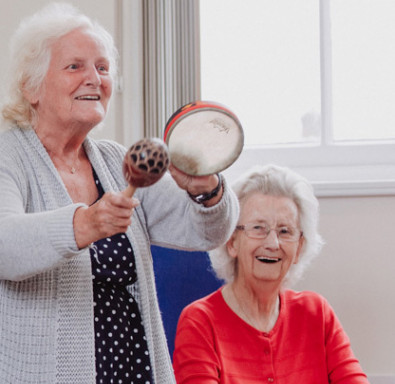Methodist Homes for the Aged (MHA)
Living MHA’s Values
New staff joining Methodist Homes for the Aged (MHA) (are introduced to the organisation’s ‘values’, which underpin the care offered:
- We respect every person as a unique individual.
- We treat others, especially the most frail and vulnerable, with the dignity we want for ourselves.
- We are open and fair in all our dealings.
- We always seek to improve, to become the best we can.
- We nurture each person’s body, mind and spirit to promote a fulfilled life.
I feel sure that Jesus fulfilled all those values during His earthly life and still holds them dear, but let’s consider ‘respect’, with maybe a touch of ‘dignity’.
Jesus showed respect for each person as a unique individual by meeting all to whom He ministered just where they were. It led hymn writer Samuel Crossman to pen those wonderful words: ‘love to the loveless shown that they might lovely be.’ Jesus didn’t just love the loveless, but also the unlovely, those treated as outcasts or unclean, who stood beyond the boundaries of ‘respectable’ society.
Even had He not healed them or ministered to their needs, they would have felt His respect simply because He stopped to spend a few minutes with them and actually spoke to them, for most people ignored or shunned them completely.
Those living with dementia can feel neglected or isolated too, perhaps because people are frightened of what they will encounter if they get too close. After all, with dementia you never know what will happen from one moment to the next.

The progression of dementia can have identifiable patterns but still affects people in individual ways, just as we are all individuals. Some drift into a contented, peaceful world of their own; others become frightened, anxious, unpredictable or even aggressive.
It is undeniable that people with dementia may not be lovely all of the time, but Jesus loved the unlovely and calls us to do so too.
Those with dementia may also feel shunned if someone mistakenly thinks there is ‘no point visiting, as they no longer know who I am.’ They may not know who you are, but may still recognise you as familiar, or someone they feel safe with. You don’t have to understand what they say.
They’re happy if someone considers them worth spending time with and you can still form a bond with them.
“Show proper respect to everyone”
1 Peter 2 v.17 (New International Version)
“Rise in the presence of the aged, show respect for the elderly.”
Leviticus 19 v.32 (New International Version)
“Show respect for old people, and honour them.”
Leviticus 19 v.32 (Good News Bible)
The positivity generated by being in your company can transform their day, bringing a feeling of well-being that far outlasts the moment itself. They may not remember spending time with you or know why they’re happy; the important thing is that you’ve brightened up their life through the transforming effect of a brief visit.
After all, they’re human beings, like you and me, and who knows which of us may live with dementia in the future and need a caring friend to lighten our day?
Do visit us at Berwick Grange. We’d love to see you.
Yours in Christ,
Sue Langley,
Chaplain, Berwick Grange MHA
